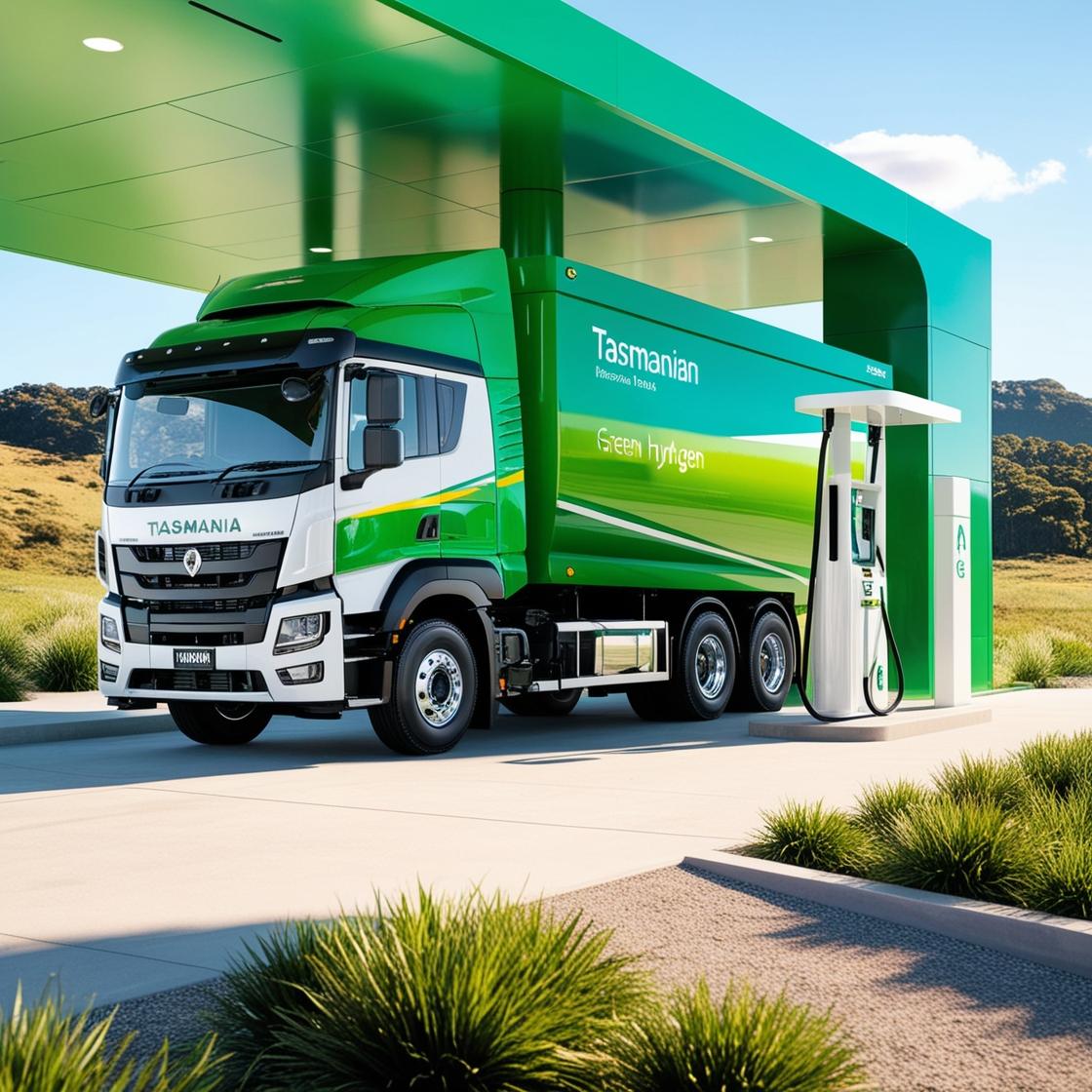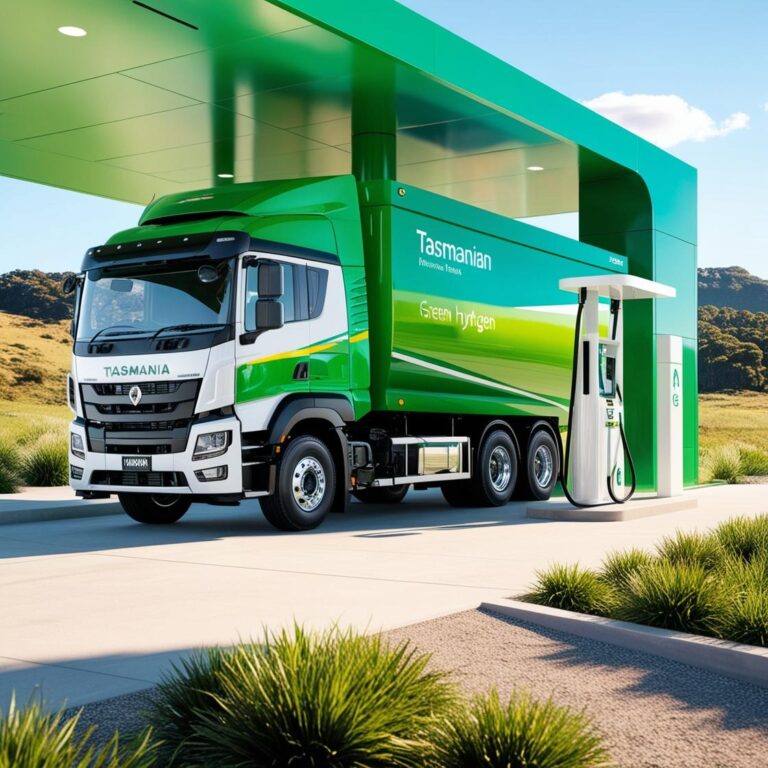1. Cost Parity with Diesel
The Green Hydrogen Price Reduction Scheme is helping bring the production costs of green hydrogen closer to diesel fuel, making it a viable and affordable diesel fuel substitute for heavy vehicle transport.
2. Environmental Sustainability
Green hydrogen significantly reduces greenhouse gas emissions, offering a cleaner, zero-emission alternative to diesel-powered vehicles, aligning with stricter global environmental regulations.
3. Stable Energy Source
Unlike diesel, whose prices are volatile due to geopolitical factors and supply chain disruptions, green hydrogen provides a more predictable and stable energy source for the transport sector.
4. Scalable Infrastructure
The Hydrogen HyWay project is developing refuelling stations with 5-megawatt electrolyzers, facilitating the widespread adoption of hydrogen-powered heavy vehicles, proving green hydrogen’s scalability and feasibility.
5. Support for Compliance and Innovation
Energy transition advisors play a crucial role in guiding businesses through regulatory challenges, helping them comply with emissions targets, and driving innovation to make green hydrogen a cost-effective, long-term solution for the transport industry.
What is the new fuel to replace diesel?
In an industry where cost control is critical, the volatility of diesel fuel prices adds pressure to the heavy transport sector’s growing need for sustainable solutions. While diesel engines have long been the backbone of heavy vehicles, their environmental impact and unpredictable operating costs are prompting the search for a reliable diesel fuel substitute. Enter green hydrogen—a renewable energy source poised to revolutionise the transport sector. Projects like Country Wide Hydrogen’s ‘Hydrogen Hwy’ exemplify how green hydrogen can deliver a stable, cost-effective alternative, offering heavy transport operators a cleaner, more sustainable option without compromising performance. Energy transition advisors play a pivotal role in this shift, ensuring green hydrogen initiatives overcome regulatory, financial, and technical barriers, cementing its place as the ultimate diesel fuel substitute for heavy vehicles.
Table of Contents
Why Diesel Fuel Must Be Replaced in Heavy Vehicle Transport
Diesel prices are notoriously volatile, influenced by global supply chain disruptions and geopolitical factors, making it difficult for businesses in the heavy vehicle transport sector to forecast and manage fuel costs effectively. The rising costs of diesel threaten the financial stability of industries such as logistics and transportation, urging the search for stable and sustainable alternatives. Moreover, diesel-powered vehicles are significant contributors to greenhouse gas emissions. The transition to alternative energy sources like sustainably produced renewable hydrogen will help reduce emissions, promote environmental sustainability, and provide a more reliable and affordable energy source.
If businesses fail to transition away from diesel, they face serious environmental and economic risks. Stricter emissions regulations, set to be implemented in 2025, will require companies to report their emissions, including from supply chains. Non-compliance could result in financial penalties, legal challenges, and reputational damage. Moreover, companies that delay adopting cleaner technologies risk falling behind in an increasingly sustainable global market, which prioritises green energy solutions. Inaction could prevent businesses from capitalising on market opportunities, further eroding their competitive advantage.
Green hydrogen, while still in its early stages, is rapidly gaining traction in the energy sector. The Hydrogen HyWay project in Tasmania is an example of a localised effort to overcome challenges such as high production costs and infrastructure limitations. Through pioneering projects like the Hydrogen HyWay, the feasibility and scalability of hydrogen as a renewable energy source for heavy vehicles are being proven. Tasmania’s significant government support, including the Green Hydrogen Price Reduction Scheme, is closing the cost gap between green hydrogen and diesel, making heavy vehicle transport using hydrogen at cost parity a reality.
The Green Hydrogen Price Reduction Scheme (GHPRS) is instrumental in bringing hydrogen fuel closer to cost parity with diesel. This initiative helps reduce production costs, making green hydrogen more accessible to the heavy vehicle transport sector. Countrywide Hydrogen’s goal is to establish hydrogen refueling stations that will supply up to 690,000 kg of green hydrogen annually. This will enable the fuelling of up to 33 fuel cell trucks per day, providing a sustainable, zero-emission transport solution for the heavy-duty road haulage industry.
The Role of Energy Transition Advisors in Supporting Green Hydrogen
Energy transition advisors play a crucial role in advancing green hydrogen initiatives, such as the Hydrogen HyWay project in Tasmania. These experts provide essential support to renewable energy projects, ensuring their success by navigating regulatory frameworks, securing funding, and driving innovation. With the Hydrogen HyWay set to begin production in 2026, energy transition advisors are pivotal in helping projects like this transition from concept to execution, positioning Tasmania as a leader in renewable energy for heavy vehicles.
The Hydrogen HyWay is a model for hydrogen adoption that could extend nationally and internationally. By facilitating the development of refueling stations equipped with 5-megawatt electrolyzers, this project supports the transition to hydrogen-powered heavy vehicle transport using hydrogen at cost parity. Energy transition advisors are instrumental in addressing the complexities of integrating renewable energy solutions like green hydrogen into existing infrastructure, helping businesses meet emissions targets while reducing dependence on diesel.
Initiatives such as the Western Green Energy Hub in Western Australia underscore the technical and economic viability of green hydrogen. These large-scale projects offer valuable insights, enabling energy transition advisors to guide localized efforts like the Hydrogen HyWay. Their expertise ensures the optimization of hydrogen production and distribution systems, helping Tasmania replicate global successes and contribute to decarbonizing heavy vehicle transport worldwide.
Advisors also provide strategic oversight in project planning, market analysis, and compliance, ensuring investments yield long-term benefits. By supporting companies through the complexities of transitioning to renewable energy, energy transition advisors, like New Energy Capital, accelerate the shift to a sustainable, zero-emission future for heavy vehicle transport. Their guidance is vital in making green hydrogen not only a viable alternative but a cost-effective and scalable solution.
For businesses navigating the path toward a green hydrogen future, partnering with experienced energy transition advisors is essential for overcoming challenges and unlocking the full potential of renewable energy projects.



